-
 +2 +1
+2 +1Psychedelic therapy may be better than conventional depression and anxiety treatments for patients with advanced cancer
In people with advanced cancer, psychedelic drugs like psilocybin, LSD and MDMA may significantly reduce the severity of depression and anxiety symptoms. Roughly 10% of patients with cancer experience anxiety, while 20% report depression. However, current research suggests that available prescription antidepressants do not significantly decrease depressive symptoms in cancer patients compared with a placebo.
-
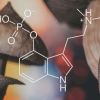 +14 +1
+14 +1Study suggests psilocybin increases mindfulness, especially when accompanied by mystical experiences
Arecent study published in Frontiers in Psychology investigates the relationship between psilocybin, mindfulness, mystical-type experiences, and serotonin receptors in the brain. Following participants for three months after a dose of psilocybin, the new findings indicate that when taking psilocybin, those who report mystical-type experiences are more likely to have increased trait mindfulness.
-
 +14 +1
+14 +1Perfectionistic concerns are similarly apparent in patients with depression and obsessive-compulsive disorder
Mental illness can be associated with many dysfunctional beliefs or mental processes. A study published in PLOS One suggests that perfectionism is one such symptom that is especially prevalent in people with obsessive-compulsive disorder and in people with major depressive disorder.
-
 +18 +1
+18 +1New research provides evidence that the pandemic changed our personalities
For many of us, some personality traits stay the same throughout our lives while others change only gradually. However, evidence shows that significant events in our personal lives which induce severe stress or trauma can be associated with more rapid changes in our personalities.
-
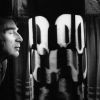 +19 +1
+19 +1Manipulating light can induce psychedelic experiences – and scientists aren't quite sure why
For millennia, people have used mind-altering techniques to achieve different states of consciousness, envision spiritual figures, connect with nature, or simply for the fun of it. Psychedelic substances, in particular, have a long and controversial history. But for just as long, people have been having these experiences without drugs too, using rhythmic techniques such as rocking, chanting or drumming.
-
 +19 +1
+19 +1New research suggests psychedelic drugs can be almost as life altering as near-death experiences
Occasionally, people who suffer intense turmoil and trauma undergo a profound change. They feel a new sense of wellbeing, purpose and appreciation of life. Their relationships become more authentic and intimate. They feel as if they’ve woken up and are living in a more intense way.
-
 +20 +1
+20 +1LSD microdosing does not appear to improve mood or cognitive ability, according to new placebo-controlled study
A new randomized controlled study of LSD microdosing has failed to find evidence that the psychedelic practice results in improvements to mood or cognition. The research has been published in the journal Addiction Biology.
-
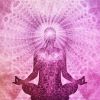 +15 +1
+15 +1Psychedelic experiences and mindfulness linked to better psychological wellbeing
A new study has found a positive association between mindfulness practice, psychedelic use, and overall psychological wellbeing. The findings have been published in the Journal of Psychoactive Drugs. “Psychedelics as a topic is exploding back into both popular culture and academic study, the potential here is tremendous,” said study author Tianhong Tim Qiu of Western University.
-
 +11 +1
+11 +1Why Microdosing Magic Mushrooms benefits health
Microdosing psychedelics is the practice of eating very low, sub-hallucinogenic dosages of a psychedelic substance, such as lysergic acid diethylamide (LSD) or magic mushrooms containing psilocybin. According to media accounts, microdosing is becoming more popular, yet there is little research on this practice in the scientific literature.
-
 +8 +1
+8 +1Breathing to Manage Your Stress - science and practice behind the powerful RSA breathing technique.
The role of the breath in meditation and stress management programs is well established. As a meditation strategy, focusing on the breath is primarily a tool for concentration, a place to focus the mind. As a stress management technique, slowing the breath, “belly breathing,” and focusing on the exhalation are all common (and effective) approaches to shifting the nervous system out of a state of hyperarousal.
-
 +9 +1
+9 +1The Healing Power of Psychedelics, According to Science
Modern science is slowly rediscovering how psychedelic substances can treat an array of mental illnesses.
-
 +18 +1
+18 +1Psychedelics can alter a person's core metaphysical beliefs for as long as six months after use, study suggests
Findings from the journal Scientific Reports suggest that psychedelic drugs can alter a person’s core beliefs about the nature of reality, consciousness, and free will. After taking psychedelics, participants’ views tended to sway from physicalism to supernatural beliefs, and these changes lasted up to six months. The researchers say the findings raise ethical considerations.
-
 +15 +1
+15 +1Psychology study sheds light on a meditation training that may help people overcome automatic habits
Meditation practice that focuses on nurturing an awareness of the present may help people overcome problematic habits, according to findings published in the journal Mindfulness. After eight sessions of open monitoring meditation, participants were better at overcoming learned automated responses during a cognitive task.
-
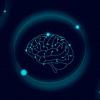 +20 +1
+20 +1What Is Consciousness?
Consciousness can be applied to the senses or feelings, it is to feel love, cold, savor your favorite dish or suffer the loss of a loved one. Consciousness is any possible experience. It is feeling love, cold, savoring your favorite dish or suffering the loss of a loved one. The word feel can be linked to the senses or feelings. However, when we refer to consciousness, the subjective experience or conscious experience occurs when we feel anything, regardless of its nature. If someone has been under the effects of general anesthesia, they know what the total absence of consciousness is.
-
 +15 +1
+15 +1Is Depression Actually a Unique State of Consciousness?
Researchers in psychology, psychiatry, and neuroscience have struggled for years to define, understand, and analyze depression, which torments untold millions of people around the globe. In clinical diagnosis, depression is understood as a collection of symptoms, which must be present together in sufficient number and for a certain length of time.
-
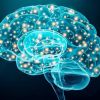 +19 +1
+19 +1Brains are getting smaller in modern humans
Throughout the past 4 million years, hominin body size has increased, with the brain growing at a disproportionate rate in relation to the rest of the body. Increasing encephalization is believed to be the main driver of the higher cognitive ability observed in mammals. Contrasting millions of years of hominin evolution, brain mass of the anatomically modern (AM) Homo has significantly decreased in the last 50,000 year.
-
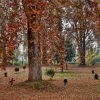 +19 +1
+19 +1Depression is more than low mood – it’s a change of consciousness
Understanding depression as an altered state of consciousness, like a dream or drug trip, could help people awaken from it
-
 +24 +1
+24 +1The origin of consciousness
MuZero is an algorithm with a superhuman ability to learn: it has learned to play 57 different Atari video games as well as Chess, Go and Shogi, and defeated the greatest human masters in every one of them. Yet, this amazing algorithm and the computer in which it is implemented are as conscious as your washing machine. Its “intelligence”, manifest in its learning ability, has nothing to do with consciousness – the ability to feel, perceive and think in the deeply subjective sense that we cherish.
-
 +10 +1
+10 +1How mindfulness could make you selfish
Mindfulness is said to do many things for our psyche: it can increase our self-control, sharpen our concentration, extend our working memory and boost our mental flexibility. With practice, we should become less emotionally reactive – allowing us to deal with our problems more calmly.
-
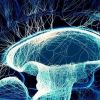 +14 +1
+14 +1Is Consciousness Bound by Quantum Physics? We're Getting Closer to Finding Out
One of the most important open questions in science is how our consciousness is established. In the 1990s, long before winning the 2020 Nobel Prize in Physics for his prediction of black holes, physicist Roger Penrose teamed up with anesthesiologist
Submit a link
Start a discussion




















